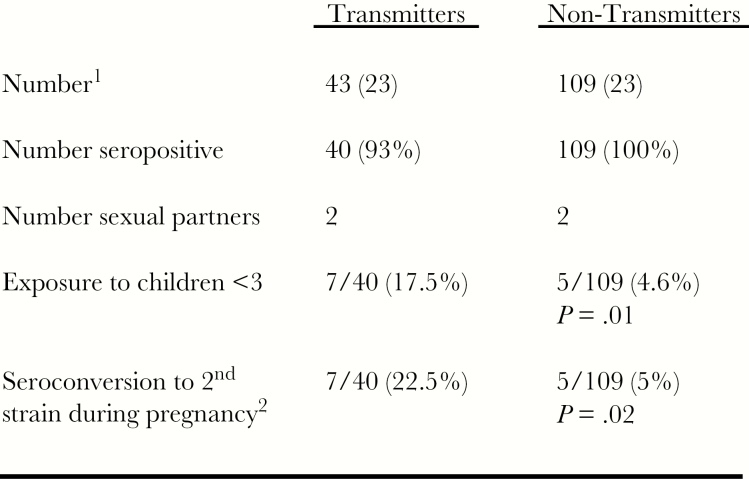Figure 1.
Increased rate of intrauterine transmission of human cytomegalovirus (HCMV) in seroimmune women with seroconversion to new antigenic variants. Sequential serum samples from women who transmitted virus to their fetuses (transmitters) and matched controls who did not transmit virus (nontransmitters) from a highly HCMV-seroimmune population were assayed for polymorphic antigenic determinants on glycoprotein B and glycoprotein H to determine reinfection with new HCMV variants during pregnancy. aApproximately 4000 women were enrolled in this prospective study of HCMV infection during pregnancy. Demographic features of the population including number (median age at enrollment), HCMV seroreactivity, number of sexual partners, and exposure to children <3 years of age are shown. bThe rate of seroconversion to a new antigenic variant of HCMV is shown (22.5% in transmitters and 5% in nontransmitters). Note that exposure to children <3 years of age was associated with seroconversion to a new variant of HCMV. Adapted from Yamamoto et al [35].

